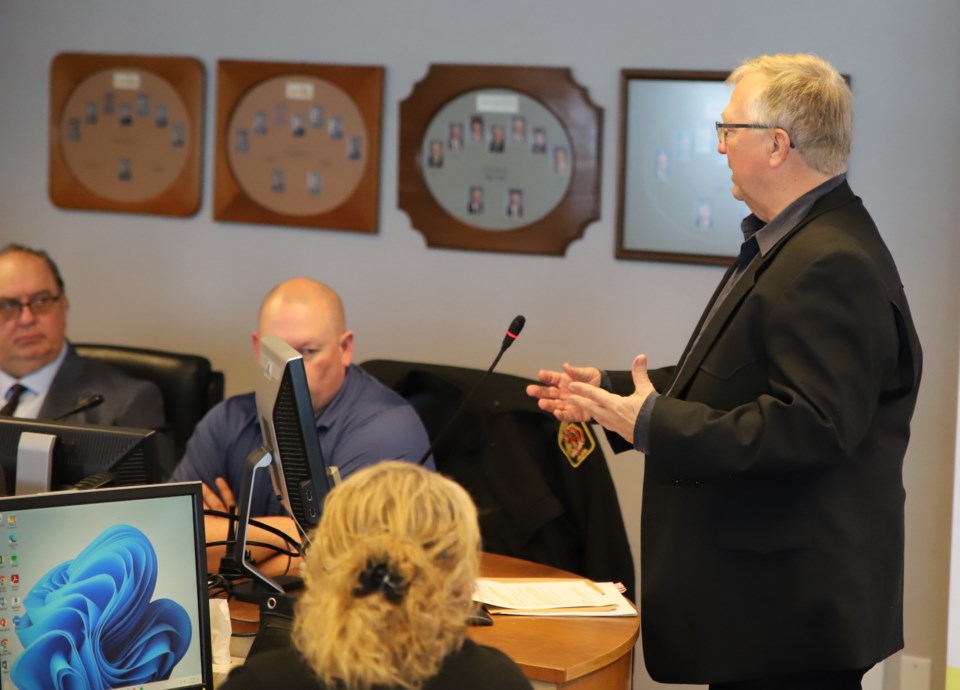OLDS — Oil and gas companies could help people in poorer nations stop using animal dung as an energy source, Red Deer-Mountain View MP Earl Dreeshen says.
Dreeshen made that statement during a presentation at Olds town council’s March 13 meeting. He gave a presentation to Didsbury town council the next day.
Dreeshen was asked by a few Olds councillors about what – if anything – is being done at the federal level to preserve jobs in the oil and gas industry.
“You know, if you think about how the world, there's billions of people on this earth that are still getting their energy from animal dung,” Dreeshen said.
“Nobody seems to think about that. Nobody seems to think about how if we can get reliable fuel – and cheap fuel – because that’s what we have if you open it up and allow us to move this product into the market.
“You could better peoples’ lives and by bettering their lives, instead of walking to get wood to gather, you could feed your family. Instead, you could be walking to school.”
Dreeshen said often residents of Canada aren’t aware of conditions in other parts of the world.
“We have a lot that we can give them and help them out in a lot of different ways.
“And it’s not necessarily all monetary. It’s a case of giving the expertise that we have and that’s what you can develop if you have a robust energy sector,” he said.
“If you have a robust economy, then you can put those dollars into those kinds of research and help somebody.”
Dreeshen said investors who would be willing to pump billions of dollars into the economy have been turned off by the fact that Canada has limited opportunities for oil and gas to be exported.
“We are no longer a place where companies say ‘that is prime real estate, that is a place where we want to do business.’ And they have so many other choices,” he said.
“I’ve talked to so many companies, and there would be billions of dollars that they would be prepared to put in and all of sudden – ‘well you know, Kazakhstan works out good too.’”
Dreeshen said that’s because in some countries, the approval process is much shorter, so projects can be up and running in a year or two, whereas in Canada, “we are nowhere near that.”
“It seems as though we just intentionally throw out an anchor and everybody ends up suffering,” he said.
"They’re coming begging for us to do something and we have no capacity.”
Dreeshen predicted that eventually the federal government will see the need to enable the oil and gas industry to export its products.
But he predicted that by then, Canada will be way down the “pecking order” of countries investors are interested in dealing with.



